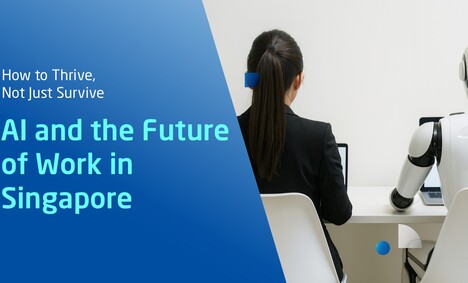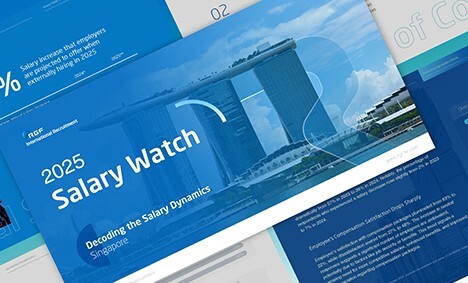If you’ve been scheduled for a competency interview as part of your job interview process, you may be wondering what to expect. A competency interview is a method of interviewing usually used to evaluate your key competencies, particularly when it is hard to judge based on paper qualifications. There are a myriad competencies that you can be questioned about, including your hands-on skills, attitude and familiarity with the industry.
Being a more systematic type of process than the traditional interview, your competency interview will feature questions designed to help your prospective employer assess specific skills or competencies. Your answer to each will enable your potential employer to work out how well you’re likely to be able to deal with particular situations, assignments and colleagues on the job. Be prepared to back up your statements with real examples of your past work styles and skills. Getting a good picture of your past experiences is the best way for your potential employer to predict your future performance within the company.
“Identifying the most qualified candidate from a pool of suitable talent may prove challenging if the traditional and impersonal approach to interviews is utilised,” explains Hiroki Nakashige, CEO of RGF International Recruitment. “In order to decrease a company’s turnover rate, it is essential to eliminate subjective assessments and to comprehensively understand a candidate’s strengths and weaknesses. Properly structured competency-based interviews now allow companies to objectively and accurately evaluate core competencies that are critical to succeed in any given role. These interviews provide a concrete overview of a candidate’s work ethic, mindset and behaviour, which would often be difficult to measure when utilising the traditional and unstructured approach.”
Why is the competency interviews more widely used today?
The job market is a lot more competitive than it used to be, and not just for job applicants like you. Businesses and organisations are now under pressure to be more careful in hiring so that they don’t lose out on skilled talent or end up hiring unsuitable candidates. With contracts becoming more definitive and laws around contract termination more stringent, these interviews allow companies to scrutinise their applicants to avoid making hiring mistakes. These interviews help achieve the following improved outcomes:
Greater objectivity
A normal, unstructured interview is basically a conversation between you and the interviewer. You’ll be asked a few questions that are relevant to the job position, but without a deep desire to understand your full capabilities. Your interviewer will end up with a rough idea of you as a person without a clear understanding of the specific skills you have. This makes the whole process very subjective.
A structured competency interview, on the other hand, has each question designed to test skills relevant to the job you are being assessed for. Your response will then be matched against a rubric and graded accordingly. This makes the interview less vague and eliminates personal bias or that “gut feeling” the employer may have in hiring you. In a panel interview, it also means a single person in the interview panel cannot highjack the hiring process as the selection method is inherently objective.
Reduced likelihood of incompatibility
Through the thorough interview process, your interviewees can also evaluate whether or not you have the right attitude for the job. Your way of thinking and work style, while good in some environments, might conflict with the team’s processes. How good your relationships will be with your colleagues will depend on the behaviour of each individual. In normal interviews, you would probably only realise any incompatibility after weeks of being in the position.
If you’re not selected, don’t be discouraged, it may have been for the best as you wouldn’t want to be stuck in an unhappy job where you can’t cope or get along with your colleagues. Your talents and skills are probably more suited for another company and with a working style similar to that you are comfortable with.
Preparing for a competency-based interview
The key to showing the interview panel the best version of yourself is preparation. Select the main skills the employer is looking for from the job description and think about examples of when and how you have demonstrated these qualities in the past. Draw upon a range of experiences from your studies and past work positions or internships that you have undertaken.
How to answer competency questions
Get acquainted with the STAR approach (Situation, Task, Action, Result) to prepare your answers. This is a helpful way to clearly and succinctly communicate important points.
Situation: Detail the situation you were confronted with.
Task: Detail the task that you had to do to address the situation.
Action: Explain what you did and why
Results: Describe the positive impact of your actions.
Try to link your answers to the position you are going for whenever possible and display knowledge of the organisation. While you should be well researched and prepared, your answers shouldn’t sound like you’ve memorised a script.
Being overprepared may lose you a few points for authenticity but being unprepared will almost guarantee you failing the interview. Don’t try to wing it and be left with “Argh, I should have said that!” after the interview is over. Certainly, don’t lie about your experiences. Any fabrication can easily be examined, and Karma will come back to bite you eventually. If you can’t immediately come up with an answer to a question, pausing for a moment to collect your thoughts is perfectly acceptable. Its better to give a good but delayed response than an unstructured, quick one.
Now’s the time to get prepared for that competency interview. Research the company, think about the skills listed on the job ad description and prepare to talk about how your past experiences demonstrate you have the competencies your prospective employer is looking for. Once that’s done, prepare to shine on the day, by simply being you.
Are you looking for a Job?
RGF Professional Recruitment handles hiring for top multinational and can connect you with exciting opportunities in Asia.
Send your CVIn this article:







